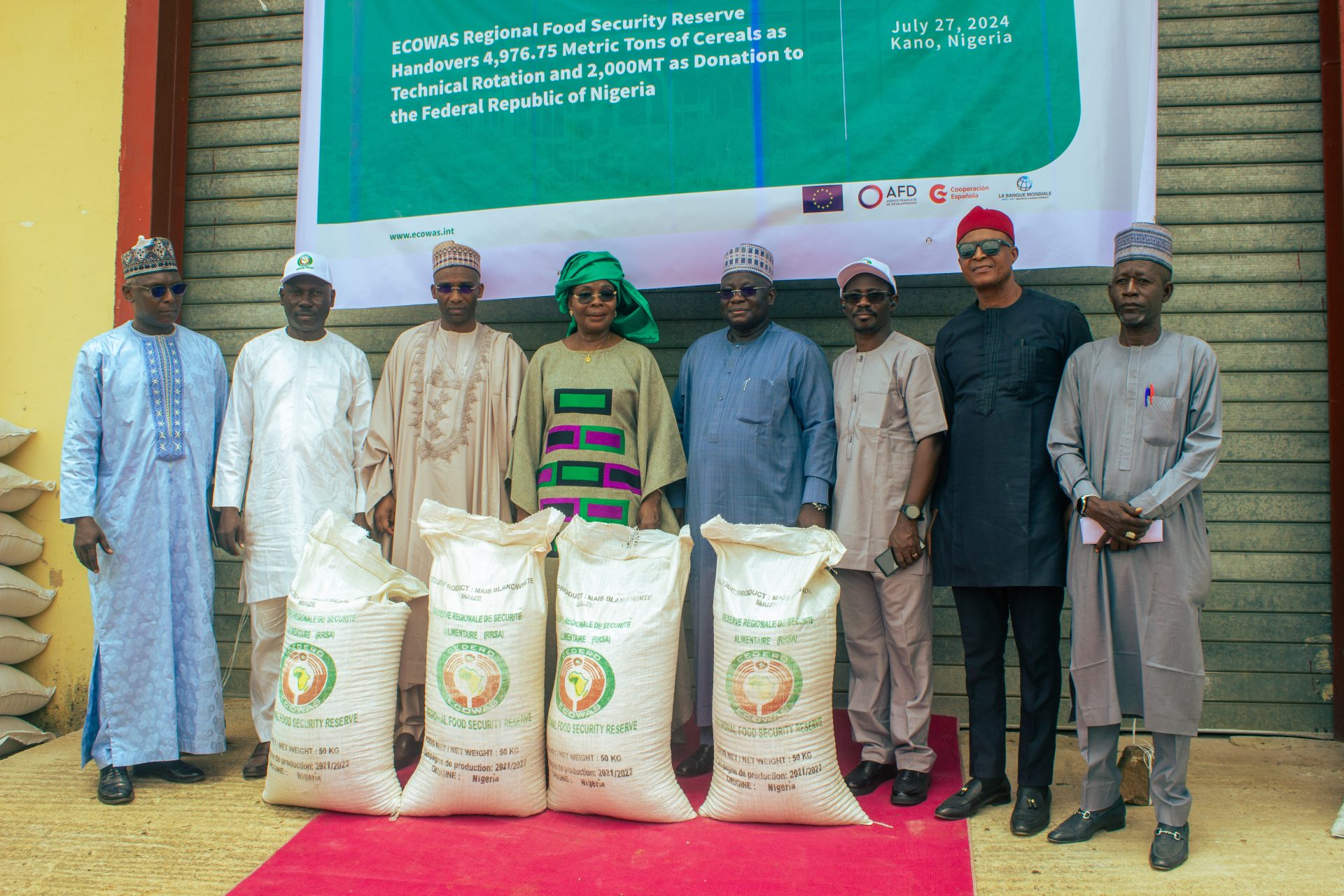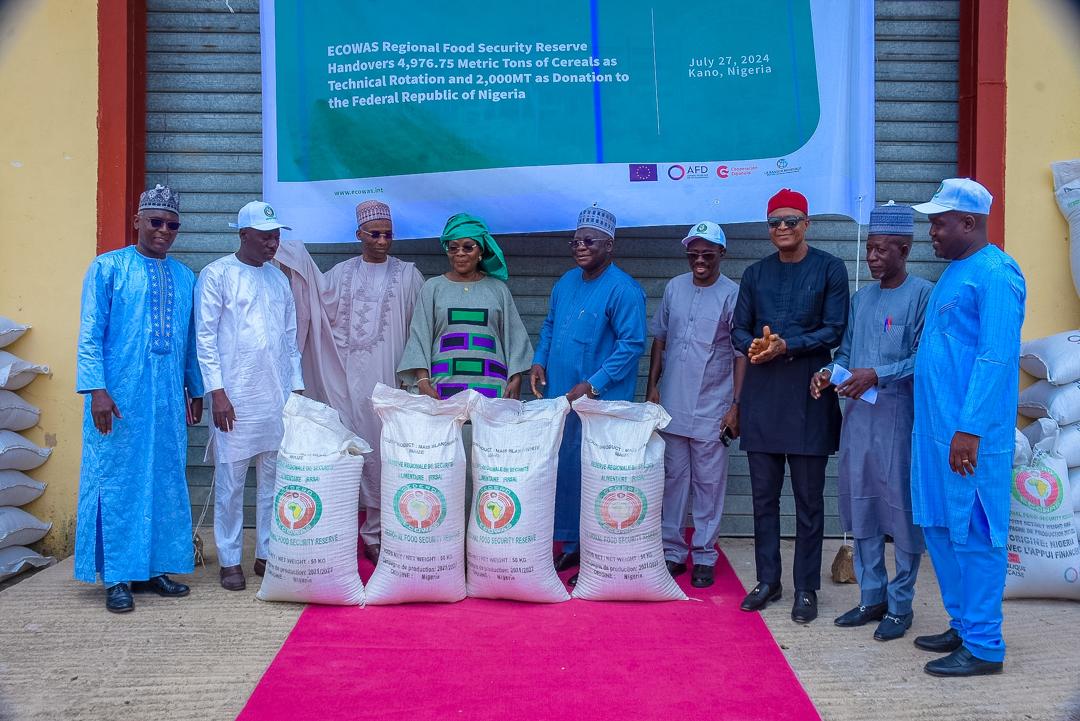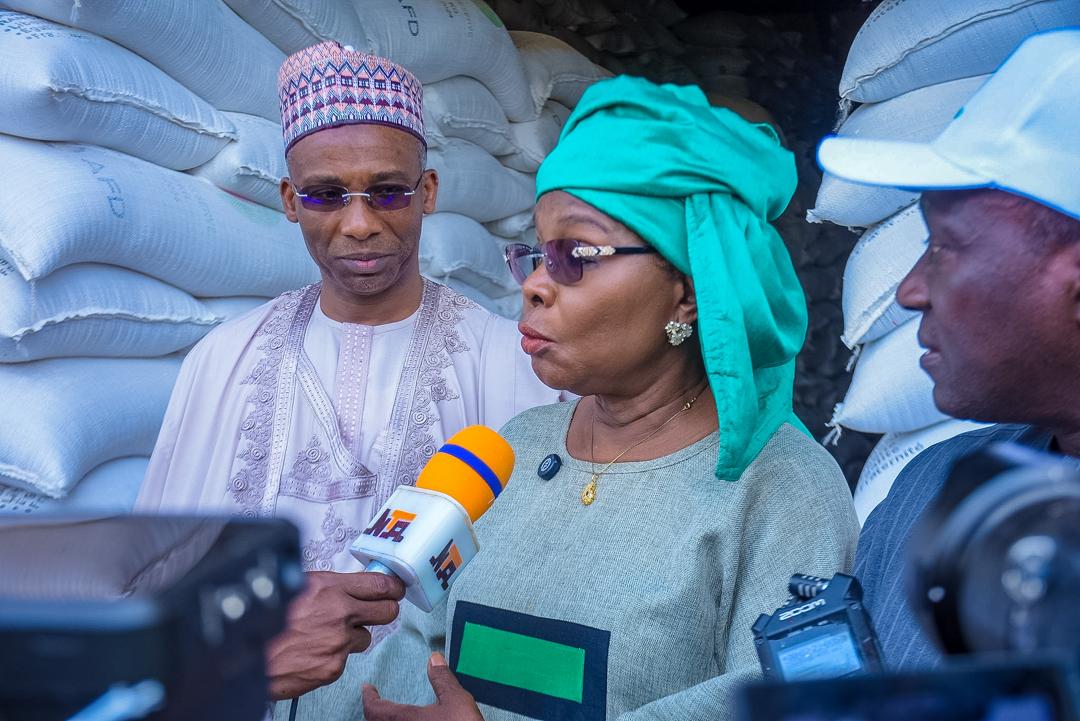Supporting the Nigerian Government efforts to face food and nutrition insecurity: ECOWAS Regional Food Security Reserve avails about 7,000 Metric Tons of Food Grains to the Federal Republic of Nigeria
30 Jul, 2024The March 2024 food and nutrition situation analysis indicates that almost 50 million people of the region including 31.7 million living in Nigeria, representing 16% of the whole population are food insecure and need assistance to cover their basic food needs in the current lean period. Considering this, the decision-making body of the ECOWAS Regional Food Security Reserve has stood up, though, availing 4,976,75 MT of cereals on technical rotation and 2000 MT under the regional solidarity modality, to support the efforts of Nigeria in handling this situation.
The Economic Community of West African States ECOWAS has donated over 2,000 Metric Tons of cereals comprising of millet, sorghum, and white maize from the Regional Food Security Reserve to the Government of Nigeria in Kano on Saturday 27th July.
ECOWAS also handed over 4976.75 tons of cereal to the Government of Nigeria as part of a technical rotation of the stocks of the Regional Food Security Reserve. Stock rotation is part of normal stock management procedures, allowing ECOWAS to regularly replace stocks that have over 2 years of storage with new ones to ensure that they are always in good quality and fit for consumption.
Handing about 7000 Metric Tons over to the Director of the Food and Strategic Reserve Department of Nigeria, Dr. S A Haruna, on behalf of the President of the ECOWAS Commission, the ECOWAS Commissioner for Human Development and Social Affairs, Prof Fatou Sow Sarr, congratulated the Federal Government of Nigeria for the efforts already undertaken towards curbing the current difficult food situation of the vulnerable populations. “This expression of regional solidarity stands as ECOWAS contribution in support of the various efforts of the Federal Government of Nigeria. This intervention contributes to strengthen the resilience of the populations affected by the difficult food and nutrition crisis”, she says.
While receiving the stocks meant for both technical rotation and voluntary donation from ECOWAS, Dr Haruna, appreciated ECOWAS for this kind gesture to the good people of Nigeria, especially the most recent donation of 2000 MT of cereals under the modality of regional solidarity. “In view of the importance and achievements of the Regional Food security Reserve, the Federal Government of Nigeria will continue to play an active role in the sustenance and growth of the Regional Reserve and is committed to the replenishment of the 4 976.75 Metric Tons mobilized stock grain-for-grain at the next harvest time”, he promises.
This intervention occurs at the right time, in response to the call from the April 2024 RPCA meeting for urgent action to support Member States to assist more than 50 million to meet their basic food needs in West Africa during this lean period with more than half leaving in Nigeria. The ECOWAS regional Food Security Reserve also plans to support five other countries (Burkina Faso, Ghana, Mali, Niger, and Sierra Leone) most affected by food and nutrition hardships during the same period.
To recall, so far, Nigeria has already benefited from the Regional Food Security Reserve about 10, 129 MT of food grains breaking down to 3,999 MT in 2020, 5,000MT in 2019 and 1,130 in 2017.
The Regional Reserve has intervened 19 times between 2017 and 2024 to support six countries in the region (Burkina Faso, Cabo Verde, Ghana, Mali, Niger, and Nigeria) for a total of more than 55,000 tons of cereals. The Regional Food Reserve also granted to Niger 205 tonnes of fortified flours in 2021 and is currently securing 230 tonnes for Nigeria to provide food supplement to pregnant and breastfeeding women and children under 59 months.
ECOWAS is grateful to the various technical and financial partners who have been supporting the operationalization of the Regional Food Security Reserve since 2016. Such partners are mostly the European Union, the French Development Agency (AFD), the Spanish Cooperation (AECID) and the World Bank.




















